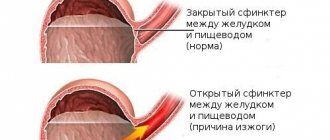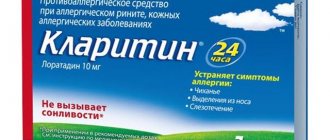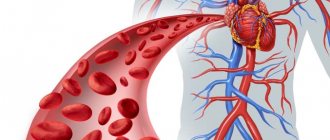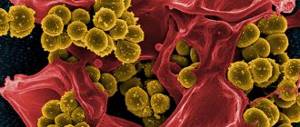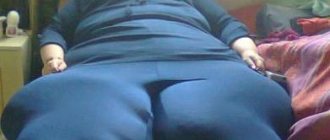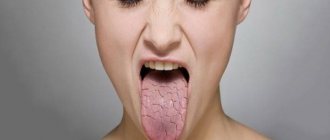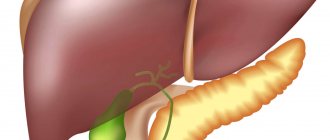Foods that cause bloating
The body of people with lactose deficiency produces a large amount of gases. This suggests that products with milk sugar are difficult to digest due to a missing enzyme (lactose).
Often, the gastrointestinal tract has difficulty digesting coarse fiber.
Bloating after eating occurs due to the consumption of certain foods or incompatible foods. Often, the gastrointestinal tract has difficulty digesting coarse fiber.
Here is a group of foods that cause bloating:
- legumes (soybeans, corn, beans);
- all types of nuts, seeds;
- milk products;
- radishes, cabbage, pineapples;
- yeast foods (baked goods, kvass);
- sparkling water.
Causes
It is important to know that bloating never occurs on its own, and there can be many reasons for its occurrence.
- Poor diet is the most common cause of flatulence. Constant snacking, refusal of full meals, overeating at night harms the body, disrupts the functioning of the stomach and the normal digestion process. The stomach begins to swell.
- Wrong diet choices. Excessive consumption of black bread, fresh cabbage, legumes, carbonated water, raw vegetables and fruits can provoke fermentation in the intestines and the stomach will begin to swell.
- Acute and chronic gastrointestinal diseases. In this case, flatulence will be one of the symptoms of pathology. It can be observed with gastritis of the stomach, cholecystitis, dysbacteriosis. It often swells with colitis and enterocolitis.
- Diseases of other internal organs. The abdomen is quite often swollen and swollen due to pathologies of the kidneys, spine, and cardiovascular system.
- Enzyme deficiency. This problem may be associated with a deficiency of phenylalanine or lactose, with the breakdown of gluten.
- Digestive disorders. The stomach becomes bloated especially often during constipation.
- Intestinal obstruction, during which there is a delay in bowel movements and the passage of gases. Flatulence is accompanied by severe pain in the intestines and stomach, heaviness, nausea, vomiting, and intoxication of the body.
- Psychological factors. Doctors have proven that prolonged emotional stress negatively affects the digestion processes and the functioning of the stomach. During stress, pain, heaviness, and spasms may appear. The stomach may swell.
Diseases that cause bloating
If bloating occurs after eating, this may be a harbinger of existing gastrointestinal diseases:
- bloating is observed in irritable bowel syndrome, in which motor function is impaired;
- dysbacteriosis – a lack of bifidobacteria in the microflora, provokes the production of gases in the stomach after eating;
- pancreatitis – failure of the pancreas (lack of enzymes);
- intestinal obstruction – formation of vomiting, tumors in the intestines.
Bloating after eating can be caused by various reasons.
Disease is one of them. It is important to remember: if you experience regular bloating, you should contact a specialist to determine the true cause of increased gas formation.
Symptoms
Bloating (flatulence) is an unpleasant condition in which too much gas accumulates in the intestines due to indigestion. It occurs immediately after eating and may be accompanied by:
- lower abdominal pain,
- belching,
- flatulence,
- nausea,
- constipation,
- severity can be signs of a variety of gastrointestinal pathologies.
Bloating is an alarming symptom of pathologies of the digestive tract. Single symptoms are not a cause for concern, but if you have belching, nausea or vomiting, you should consult a gastroenterologist.
Other factors that cause bloating
Bloating after eating, possibly due to other factors.
Read the popular article on the site: Menopause in women: symptoms, age-related characteristics, treatment with effective methods.
Frequent constipation. When a person has a rare bowel movement (once every two days), feces accumulate in the body, which leads to increased fermentation in the colon with significant gas formation.
Medicines. Flatulence is often the reason for treatment with antibiotics. A risk factor includes taking laxative medications.
It is important to know: you should not abuse laxatives, as this disrupts the process of gas formation, which leads to bloating after each meal.
Senile syndrome. As the body wears out and people age, metabolic processes are disrupted and the intestinal muscles weaken (age-related atony).
Air entering the stomach. When swallowing or chewing any food, air enters the stomach, this process is called aerophagia. When air is swallowed, the production of gases increases, which are released in small quantities through belching, and the rest enter the large intestine.
Changes during the menstrual cycle. Before menstruation, some women experience diarrhea, hyperemia, weakness, lower back pain, abdominal pain, excessive gas formation, and heaviness. Pathological changes disappear on their own after menstruation.
Menopause. With excessive production of progesterone, a malfunction of the gastrointestinal tract is provoked , which leads to constipation. Hormonal imbalance is associated with menopause, and there may be delays in fluid excretion, which contributes to flatulence.
Methods of therapy and prevention
You can make certain lifestyle changes to avoid constant bloating and active gas formation after eating food.
This will be much more effective than treatment with various medications.
The first very simple recommendation is to be careful when chewing food - you need to chew each piece of food at least 20-30 times.
This process takes quite a long time, and it is not always possible to eat quickly.
However, eating small portions of food slowly over the recommended amount of time means the stomach has the opportunity to produce more digestive juices to digest food better.
As a result, products are broken down naturally, easily and efficiently. It relieves the symptoms of indigestion, bloating, acid reflux, and also reduces the amount of gas released after eating food.
Below are other lifestyle changes that can help you get rid of bloating after eating:
- If a person smokes, he needs to quit this bad habit - smoking not only has a detrimental effect on the digestion process, but also aggravates bloating after eating.
- It is advisable to drink enough water, as this will relieve the body from dehydration and generally have a beneficial effect on overall health. However, you should avoid drinking water 30 minutes before meals and try to limit the amount of liquid consumed during each meal so as not to dilute your digestive juices.
- It is recommended to reduce or completely eliminate the abuse of alcoholic beverages. If a person feels the need for alcoholic beverages, it is advisable to drink them in moderation.
- You need to avoid stress and remember that during stressful situations, some hormones increase the amount of acid in the stomach, causing indigestion or worsening various conditions (flatulence, ulcers).
- Moderate exercise is necessary. This will not only help a person relax, but will also improve digestion and digestion of food in general.
Unless accompanied by other serious symptoms, gas, bloating and heaviness in the stomach are a fairly common condition experienced by many people even after eating a light meal and require little or no medical treatment.
However, there are several over-the-counter medications available that can help reduce the amount of gas produced and the abdominal pain associated with this process.
It is advisable to coordinate treatment with any medications with your doctor.
Antacids may help relieve symptoms of stomach pain and bloating. It is believed that medications containing activated charcoal are also very useful in treating flatulence and bloating after eating.
You can purchase these medications without a doctor's prescription or consult a specialist for prior consultation.
However, there are also several home treatments for the condition that are more effective than any other means by which bloating is treated.
Mint, in particular, is considered one of the herbal remedies for getting rid of flatulence. You can either chew raw mint leaves or brew mint tea to remove excess gas after eating.
Secondly, a herbaceous plant called asafoetida mixed with warm water is also very helpful in removing excess gas.
However, if a person experiences frequent bloating and flatulence, he must make drastic dietary changes in his diet, as a result of which he can completely cure and prevent this condition.
It is important to contact a medical professional (gastroenterologist) in advance if a sick person suffers from bloating on a regular basis.
The doctor will tell you why certain symptoms of indigestion occurred, what their causes are, and how to properly treat a particular disease associated with gastrointestinal problems.
In case of any underlying diseases of flatulence, early diagnosis and treatment are essential in discovering the cause.
However, treatment may vary from one patient to another, according to the underlying cause of the condition.
Lifestyle changes to treat bloating
Dysbacteriosis is the most common cause of flatulence; to avoid this pathology, it is necessary to consume bifidobacteria in the diet to improve intestinal microflora.
If there are no diseases that can lead to bloating after eating, then you need to change your lifestyle.
To prevent bloating, regular active bowel movements are required, which can include physical activity .
This especially applies to those people who lead a sedentary lifestyle or go to rest after eating. Walking and light exercises will significantly improve your health.
Don't miss useful advice from doctors about: Sinusitis: symptoms and treatment at home
If foods that cause bloating have been noted, it is better to reduce their consumption to a minimum.
Diagnostics
Before determining how to treat bloating, it is worth undergoing an examination and determining the causes of its occurrence. First of all, attention should be paid to diet and eating patterns. This will help determine which foods could cause increased gas formation.
Then the attending physician will give a referral to:
analysis of stool for intestinal microflora; bile examination; examination of gastric juice; bacterial analysis of stool; Ultrasound examination of the digestive organs.
Depending on the diagnostic data obtained, as well as the severity of symptoms of flatulence, a treatment regimen is determined.
Diet for bloating
By adhering to proper nutrition, you can permanently get rid of excessive gas formation.
Please note: in cases where flatulence is caused by the presence of diseases of the gastrointestinal tract, the diet should be adjusted by a specialist in each case individually.
Here is a special diet that can help you avoid the unpleasant sensations of excessive gas formation:
- For breakfast you can serve any cereal porridge, cottage cheese dessert, sour cream, prunes.
- Second breakfast – muesli with juice.
- A more thorough approach is required for lunch - carrot puree, boiled turkey, broth (preferably fish), unsweetened tea.
- For afternoon tea, you can bake an apple or prepare buckwheat porridge with steamed meatballs.
- For dinner, it is recommended to drink 200 ml of low-fat yogurt.
Thanks to this diet, you can forget about abdominal discomfort, cramps, and excess gas. You should avoid processed foods, fatty foods, animal oils, millet, and pearl barley.
Women suffering from bloating during menstruation should adhere to this therapeutic diet a few days before the onset of their menstrual period, and it would not be superfluous to give up drinking coffee and reduce the amount of salt and granulated sugar consumed.
What to do?
If your stomach becomes bloated after eating, you need to eliminate the causes of excess gas formation. Let's consider existing methods for restoring the normal functioning of the gastrointestinal tract.
Medications
Medicines for stomach bloating after eating can help quickly relieve discomfort. The principle of their operation is based on crushing large gas bubbles and removing them naturally. Additionally, they help reduce gas formation in the intestines. These products include Espumisan, Sub Simplex, Bobotik.
You can alleviate the condition by taking adsorbents before meals (White coal, Sorbex, activated carbon, Enterosgel).
Adsorbents and carminatives collect and remove gases, relieving discomfort. But they do not affect the root cause of flatulence.
Traditional methods
Photo from the site edinstvennaya.ua
Traditional medicine recipes effectively eliminate bloating after any meal. Let's look at a few popular methods:
- Mustard helps improve digestion, has an antibacterial effect, and relieves spasms. During meals, it is enough to eat 1 tsp. this product in order to prevent bloating.
- A decoction of dill (seeds) and parsley removes accumulated gases and relieves pain in the intestines. To prepare the product 1 tsp. raw materials are poured with 1 glass of boiling water. After 3 hours, take ¼ cup 3-4 times a day.
- Fennel seeds stimulate bile production and peristalsis, preventing bloating. You can simply chew them after meals or make tea (2 tablespoons per glass of water).
Drinking mint tea before bed prevents excess gas formation. You can take this advice into account to prevent flatulence.
Nutrition
Nutritionists suggest getting rid of bloating after eating by balancing your diet. They recommend eating more foods that reduce gas formation in the intestines:
- Bran, crackers, yesterday's bread.
- Lean fish, seafood.
- Parsley, dill, caraway seeds.
- Meat and fish broths.
- Steamed cutlets, meatballs, meatballs from poultry, veal, rabbit.
- Fermented milk products with low fat content.
- Rice, semolina, buckwheat, oatmeal.
- Steamed omelette or soft-boiled eggs.
- Pumpkin, potatoes, beets, carrots (in limited quantities).
- Green tea, compotes, juices diluted with water, cocoa, blueberry and rose hip decoction.
When following a diet, it is necessary to exclude carbonated drinks, limit the consumption of legumes, cabbage, whole milk, apples, and baked goods.
Medications to help relieve bloating after eating
There are completely safe medications that can be used to improve the condition in case of sudden excessive gas formation. The heaviness of the stomach can be relieved with the help of medications without consequences for health, however, in order to say goodbye to the unpleasant sensation forever, you need to consult a doctor and prescribe a comprehensive treatment.
Here is a list of some drugs that are in demand among the population against heaviness in the abdomen.
| Name | Group | Action |
| Activated carbon | Enterosorbents | Absorb poisons, toxic substances, alkaloids. Helps with bloating by removing gases. |
| Mezim Forte | Enzymes | Normalizes the functioning of the gastrointestinal tract, improves absorption, recommended intake after eating. |
| Pancreatin | Enzymes | It has a similar effect to the drug Mezim Forte. |
| Espumisan | Defoamers | Removes gases, recommended for use in cases of rapid removal of gases with blocking of new bubbles in the intestines. |
| Hilak Forte | Antidiarrheal | Normalizes intestinal microflora |
| Enterosgel | Entorosobent | Removes toxins, restores microflora. |
| Phosphalugel | Enterosorbent | The action is similar to the drug Enterosgel. |
General principles of treatment for diseases
Severe bloating, especially after eating, caused by a disease of the digestive system, needs to be treated comprehensively. Unpleasant symptoms of flatulence are relieved with the following medications:
- Enterosorbents (Diosmectite, Enterosgel, activated carbon).
- Defoamers (Simethicone, Espumizzan).
- Non-pancreatic enzymes (Mezim, Pancreatin).
- Non-absorbable antibiotics (Rifaximin, is not absorbed into the blood, but is excreted unchanged in the feces).
- Probiotics (Linex, Bifinorm).
However, primary therapy includes drugs aimed at treating diseases of the stomach, pancreas, liver or other organs. The doctor draws up a plan for each patient individually.
Traditional recipes for bloating
In folk medicine, there are a huge number of recipes against the accumulation of gases.
In the morning, you should drink fresh potato juice on an empty stomach, after which you need to lie down for half an hour. Meals can be eaten no earlier than an hour later. The course of therapeutic therapy is 10 days, then a ten-day break after which repeated therapy with potato juice is required.
When your stomach is swollen, dill water helps a lot . Preparation: 2 tsp. dill seed per 200 ml of boiled water, leave for at least an hour. Take the prepared dose in 3 approaches during the day.
Read the popular article on the site: Dry cough in an adult - treatment with drugs and folk remedies.
Bitter wormwood is an anti-bloating remedy , a recipe that was passed down to us by our ancestors. One tablespoon of dry raw materials should be filled with boiled water, left to infuse, and taken with 1 tsp. honey 3 tbsp. l. ready-made wormwood infusion. The drug is taken 30 minutes before each meal.
If your stomach is swollen, a hot decoction of cumin will help . Cumin is poured with boiled water, kept for about 3 hours, you can also prepare a faster medicinal infusion by pouring 200 ml of water over the cumin, boiling for 8-10 minutes. You need to take the decoction 4-6 times a day, 30 minutes before meals.
Ginger root has beneficial properties for the digestive tract . You need to take it 1/4 tsp after eating. This folk recipe helps relieve the feeling of heaviness from overeating, leaving fresh breath.
Solutions to the problem
Features of treatment for bloating depend on the cause that caused such trouble. In most cases, a conservative approach is sufficient - taking medications, following a diet and general recommendations.
In severe cases, surgery may be required.
Drug therapy
Various medications are used for bloating. Carminatives can reduce gas formation .
In addition, they take medications to increase the tone of the muscle walls of the intestines and stomach and speed up the emptying of the gastrointestinal tract. Metoclopramide is one of these medications.
They also resort to enterosorbents , which absorb various compounds that provoke gas formation. They often use activated carbon, Smecta, Enterosgel, and Polysorb.
If bloating is caused by dysbiosis, then it is necessary to take probiotics - Linex, Lactofiltrum, Bifidumbacterin. Such drugs are also necessary for antibacterial therapy.
Antibiotics are prescribed in the presence of an infectious process of a bacterial nature. The drug is selected after identifying the causative agent of the disease and determining its sensitivity to the drug.
If bloating is caused by enzyme deficiency, enzyme preparations such as Mezim, Creon, Pancreatin are used.
In case of insufficient bile production, choleretic agents - Allohol, Holosas, Flamin.
In case of intestinal bloating and increased gas formation, they also resort to antispasmodics , since the accumulation of gases in the intestines can be associated with muscle spasms. Of these drugs, Drotaverine and Papaverine are most often used.
Drug therapy should be prescribed by the attending physician after diagnosis and identification of the cause of unpleasant symptoms. Drugs that are effective in one case may be contraindicated in other pathologies.
Diet and general recommendations
Regardless of the cause of bloating, you should stop drinking and smoking. It is also important to exclude foods that cause increased gas formation:
- cabbage;
- legumes;
- corn;
- dairy products (mainly whole milk);
- pastry products;
- grape;
- sugar substitutes (sorbitol, xylitol);
- sparkling water, beer, kvass.
In the vast majority of cases, bloating is associated with pathologies of the gastrointestinal tract, so you should also avoid fatty meats, chocolate, sweets, and ice cream. Smoked meats, spices, marinades, canned food, semi-finished products, and fast food should be excluded.
You need to eat fractionally and in small portions. Overeating and fasting are strictly prohibited. Food must be chewed thoroughly; large pieces should not be swallowed. It is recommended to organize meals at the same time.
If you have bloating, you should limit heat treatment methods to boiling, stewing and steaming. All food should be at the optimal temperature.
It is necessary to observe the drinking regime. On average, you need to consume 1.5-2 liters of liquid per day, mostly clean water. The list of permitted drinks is determined by the root cause of bloating, but coffee and strong tea should be avoided in any case.
To improve intestinal motility, it is recommended to consume the following products:
- porridge;
- fresh vegetable salads;
- lean meats and fish;
- low-fat fermented milk products.
You should not lie down immediately after eating; you should either sit quietly at the table or walk around for 10-15 minutes.
Bloating in infants
Bloating (when the baby swells and the tummy becomes dense) is observed in most infants. Carrying the baby in an upright position after eating will help to avoid such trouble. It is also important to feed the baby on demand and adherence to breastfeeding technique, in particular a firm grip on the nipple.
General information about flatulence
Normally, in the cavity of the stomach and intestines of an adult who does not suffer from digestive pathology, up to 1 liter of gases are formed. This is the result of the activity of bacteria present in the intestinal environment, which take part in the processes of breakdown and digestion of food. Gases in the form of bubbles are regularly eliminated through bowel movements and their natural release (flatulence). If gases accumulate in excess for various reasons, their volume can exceed 2-3 liters. In such cases they speak of a state of flatulence. It is accompanied by a feeling of heaviness and fullness in the abdomen, belching, hiccups, and attacks of spasmodic pain. During flatulence, gas bubbles form a dense shell, which prevents them from “collapsing” and being expelled, the intestinal lumen is stretched, greatly increasing in size, and the intestinal walls experience tension.
To understand why your stomach is often bloated in the evening and a lot of gas is formed in the intestines, you need to adjust your diet. If this does not improve the condition, it is advisable to undergo a medical examination.
Nutrition
The first step is to review the menu and correctly arrange the dishes and products in them. It is undesirable to include a lot of varied food in one meal - the stomach is unlikely to like the dubious food neighborhood. Preference should be given to easily digestible foods: lean meat with a light side dish (vegetables, rice), soups with chicken, fish or vegetable broth, a small amount of lactic acid products: yoghurt, kefir, cottage cheese.
Give preference to easily digestible foods
The diet should include fresh fruits and berries - it is better to replace dried fruits and biscuit-based sweets that cause gas. Animal oil should be replaced with vegetable oil - olive, grape seed, sunflower. You should not drink while eating - it is better to chew your food thoughtfully and thoroughly so that it mixes with saliva.
The diet should include fruits and berries
It is important to respect food traditions. Avoid eating on the run; after preparing food, you need to sit down at the table, put down your book or gadgets, and completely immerse yourself in absorption. It is recommended to eat with a small spoon or cut foods into small pieces to make them easier to chew.
Pathology factors
Almost more often than with incorrect eating behavior, the stomach swells due to pathologies. All organs of the digestive tract are closely connected and influence each other. The slightest malfunction in the operation of any of them inevitably worsens the process of food digestion, as a result of which rotting and fermentation processes occur in the stomach and intestines, semi-digested food stagnates, releasing toxins and poisoning the body.
The slightest disruption in the gastrointestinal tract affects the digestive process
As a result of undiagnosed or untreated gastrointestinal diseases, both the immune system and the nervous and cardiovascular systems suffer, a person feels unwell, and bloating is just a small part of the troubles brought by pathological factors. Depending on the duration and stage of the disease, a distended belly may be accompanied by other signs:
- Frequent heartburn, burning sensation in the chest.
- Unpleasant, putrid odor from the mouth.
- Stool disorders.
- Pain in the epigastric region.
- Nausea and even vomiting; gagging often occurs while eating.
- Increased body temperature.
- Lethargy, irritability, rapid fatigue even from usual activities.
- Sleep disorders and the like.
If these symptoms recur or are present in a complex manner, the problem should be solved together with a doctor. A visit to the hospital will help identify the cause of increased gas formation and prescribe adequate therapy.
How to treat flatulence?
Treatment of persistent bloating occurs in the form of complex therapy. The patient needs to change his diet, undergo a comprehensive examination and take all measures aimed at restoring the functionality of the digestive system.
Nuances of treating flatulence:
- if regular bloating occurs after eating food, the obligatory specialists who need to be examined are a gastroenterologist and a therapist (the course of treatment will directly depend on the abnormalities that these doctors identify);
- to find out the cause of bloating, it is necessary to undergo an examination by a specialist; if abnormalities in the functioning of the digestive system are detected, the doctor will prescribe appropriate medications (if bloating appears rarely and only after negative factors, then it is not necessary to go to a medical facility; drugs to normalize digestion are sold in pharmacies without a prescription );
- harmful foods are excluded from the diet (coffee, sweets, fatty foods, spicy foods and preserves; after the course of treatment, these products can be consumed, but only if their quantity is controlled);
- Fresh pumpkin juice can help normalize digestion (200 ml per day should be consumed daily for a week);
Bismuth preparations and activated carbon have the ability to remove accumulated gases well (these agents are mandatory in the treatment of flatulence, regardless of the cause of its occurrence);
- the diet should contain fermented milk products (this group of products is distinguished by its ability to normalize digestion and intestinal microflora);
- traditional medicine recommends drinking aloe juice mixed with honey in equal proportions (allergy sufferers should not use this method of treatment);
- when using alternative medicine methods, it is necessary to objectively evaluate recipes and health status (for example, if you are prone to allergies, then you should not experiment with recipes that contain allergens);
- Regular use of chamomile decoction will help prevent bloating;
stressful situations must be minimized (if the psyche is too sensitive, then you can take a course of antidepressants or sedatives);
- to prevent bloating, it is recommended to drink at least a small amount of herbal tea after meals (you can use pharmaceutical preparations, St. John's wort, calendula, chamomile or fennel);
- Eating should be done in a calm environment (talking while eating, quick snacks or simultaneous consumption of carbonated drinks with meals should be avoided).
If bloating appears an hour after eating, it is important to pay attention to the frequency of this symptom. If there has been overeating, a quick snack or consumption of a large amount of harmful foods, then the reasons for the discomfort are obvious. In cases where bloating appears constantly, it is necessary to visit a doctor and undergo an appropriate examination.
Pharmacy drugs
There are several groups of pharmaceuticals that effectively combat both increased gas formation and associated troubles - flatulence, heartburn, abdominal discomfort after overeating or eating the “wrong” product.
The first group includes enterosorbents. They absorb toxins, products of rotting and fermentation, and effectively remove gases. However, these remedies are not suitable for long-term use, since along with harmful substances they “expel” useful ones from the stomach, so they can be used as a quick one-time aid.
"Polysorb"
"Enterosgel"
"Smecta"
Activated carbon
The second group includes carminatives that reduce gas formation, promote digestion, and relieve spasms. As a rule, such drugs are made on a plant basis and are approved for use by children and pregnant women.
"Tirozol"
"Sub simplex"
The third group is defoamers. These products are aimed at reducing the level of mucous foam, the bubbles of which contain gas. When the foam “sits” at the bottom of the stomach, gases are released and can come out - on their own or with the help of carminative medications.
"Espumizan L"
"Motilium"
The fourth and fifth groups are probiotics and enzymes. These drugs help well with weak digestive activity, problems with the pancreas, dysbacteriosis and other microflora disorders. Let's look at what specific medications can help with a bloated belly.
"Bifiform"
"Lactofiltrum"
"Creon"
"Mezim"
Perhaps you can decide on your own to take enterosorbents. For any other drug, you should consult a doctor or at least tell the pharmacist about the nature of the problems and ask for a recommendation on taking the medication. You can also use traditional medicine.
Bloating and flatulence in pregnant women
When carrying a child, this problem arises very often. There are specific reasons for this:
- weakened production of enzymes by the pancreas;
- compression of the intestine, inhibition of its motor function by the growing uterus;
- hormonal changes that weaken muscle tone.
However, no matter how natural the cause of flatulence and bloating may seem to you, you should notify your doctor. It could turn out to be much more serious.
Phlegm in a child's throat: what to do
Discussion: 8 comments
- Mila:
04/28/2016 at 08:57Previously, I was often addicted to all sorts of sodas like cola. Now I constantly suffer from abdominal pain and gas. I have already given up the bad habit, probably the reason is not only soda, but indigestion. I was looking for a remedy for pain and came across Trimedat, judging by the description, it should help. Who used it? Did he help you?
- Alla Bulavina:
06/25/2016 at 21:24
Honey, he didn't help. Although his mother received him, she said that there was no point at all. Now I bought Redugaz tablets, it’s a completely different matter. Even I had to try them once and they really helped quickly, the bloating went away.
- Valentina:
09/06/2016 at 22:31
I have one passion for dishes made from legumes, I simply adore them, and after them the body’s natural reaction is flatulence. Previously, because of this nuance, I gave up my preferences, but now I take Orlix tablets for gas formation. And I eat whatever I want.
- Daria:
10/21/2016 at 11:21 pm
Vegetarianism is my meaning in life. But unfortunately, legumes, cabbage, eggplant, and zucchini give me flatulence. Sometimes it’s so strong that you don’t even want to do anything or see anyone. I consulted a doctor, he recommended Orlix tablets. I've been taking them for a month now. I feel very good now. There’s not even any gas at all, I’m very happy about that.
- Vovan:
07.11.2016 at 10:49
Now it’s clear why you can insert a pipe from Naftogaz into me and install a gas outlet for the whole Square; it may also remain for Europe)). So I drank 4.5 strong beers and ate almost 200g of peanuts and bread before going to bed. p.s. note to Ukrainians!!!)
- Dina:
12/26/2016 at 04:14
I’ve been going to doctors for 2 years now, but they can’t determine the specific cause of flatulence... They say that my stomach has been spoiled by poor nutrition... I react to almost everything, to flour, to fruits, vegetables, soda. I don’t know what I would do without the pills. And Orlix helps very well, I take it with lunch and I can live, very much so)
- Osen:
08/20/2017 at 12:13
Girls, there is a new remedy for flatulence, Orlix, maybe someone has already used it. Tell me then.
- Catherine:
04/13/2018 at 18:59
Yes, there is such a drug, I took it not so long ago, when I was on a diet and got flatulence, as soon as I ate something, a hurricane began in my stomach. But with Orlix there are no such problems, I took two tablets at the beginning of lunch and worked calmly.


